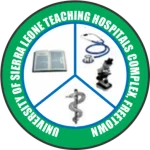Background
Health insurance is a risk-pooling mechanism to mitigate catastrophic healthcare costs and reduce out-of-pocket spending, which correlates with poverty. In Nigeria, the informal sector constitutes about 58.2% of the economy. Thus, high enrolment in this sector would protect a significant portion of the population from catastrophic health expenses. This study aims to assess the perceptions and determinants of enrollment in the Osun State Health Insurance Scheme (OHIS) among different occupational groups within the state’s informal economy.
Methods
This descriptive cross-sectional study used a multi-stage sampling technique to recruit 390 participants from the informal sector, using a self‑designed, pretested, interviewer‑administered questionnaire. Data were analysed using IBM SPSS Statistics version 20. The chi-square test and logistic regression were used to determine associations between categorical variables, and the level of significance was set at 5%.
Results
This study comprised predominantly males (53.8%), with a mean age of 37.35 ± 11.80 years. Despite high awareness (65.9%), overall knowledge of the health insurance scheme was poor (76.2%). Enrolment rates were low (10.5%), most respondents exhibited unsupportive attitudes (76.2%) and negative perceptions (93.1%). However, 49.5% expressed willingness to enrol. Supportive attitudes and good knowledge significantly influenced enrolment status (AOR: 6.654 and 4.394, respectively).
Conclusion
This study indicates that enrolment status in the informal sector was significantly associated with attitudinal, cognitive, demographic, and economic factors. To enhance enrollment rates, the implementation of comprehensive educational initiatives is recommended to increase awareness and understanding of health insurance schemes .
